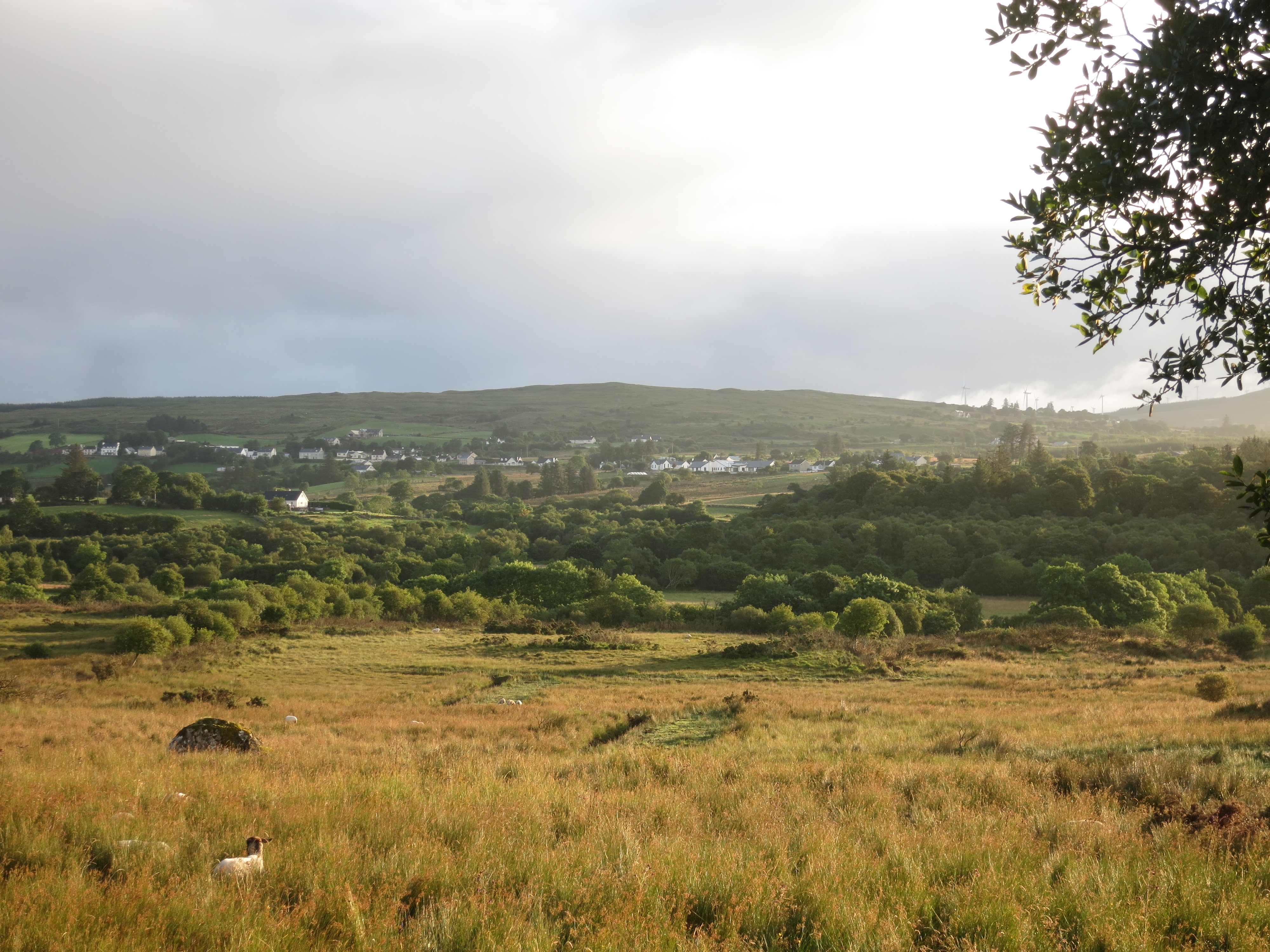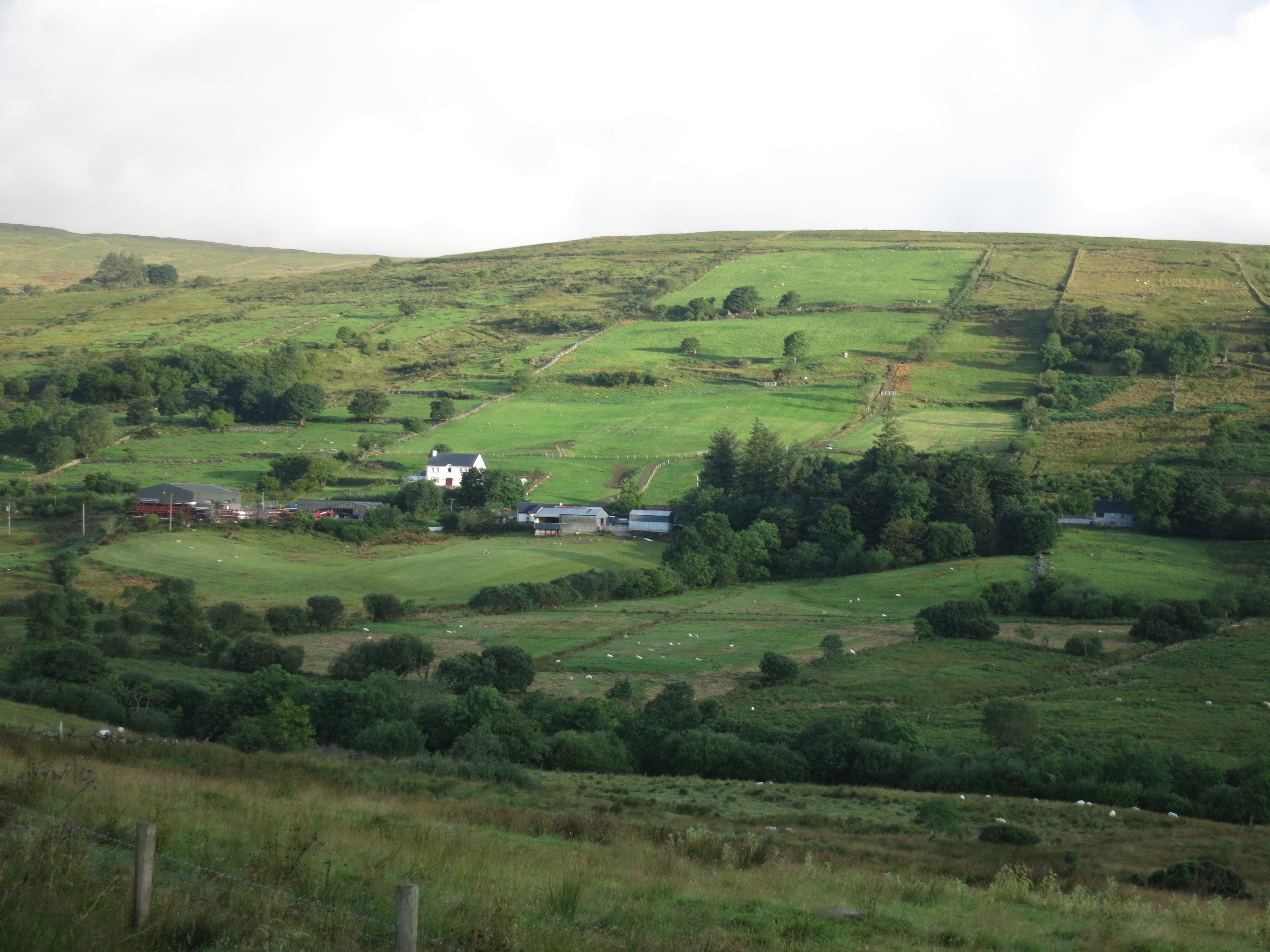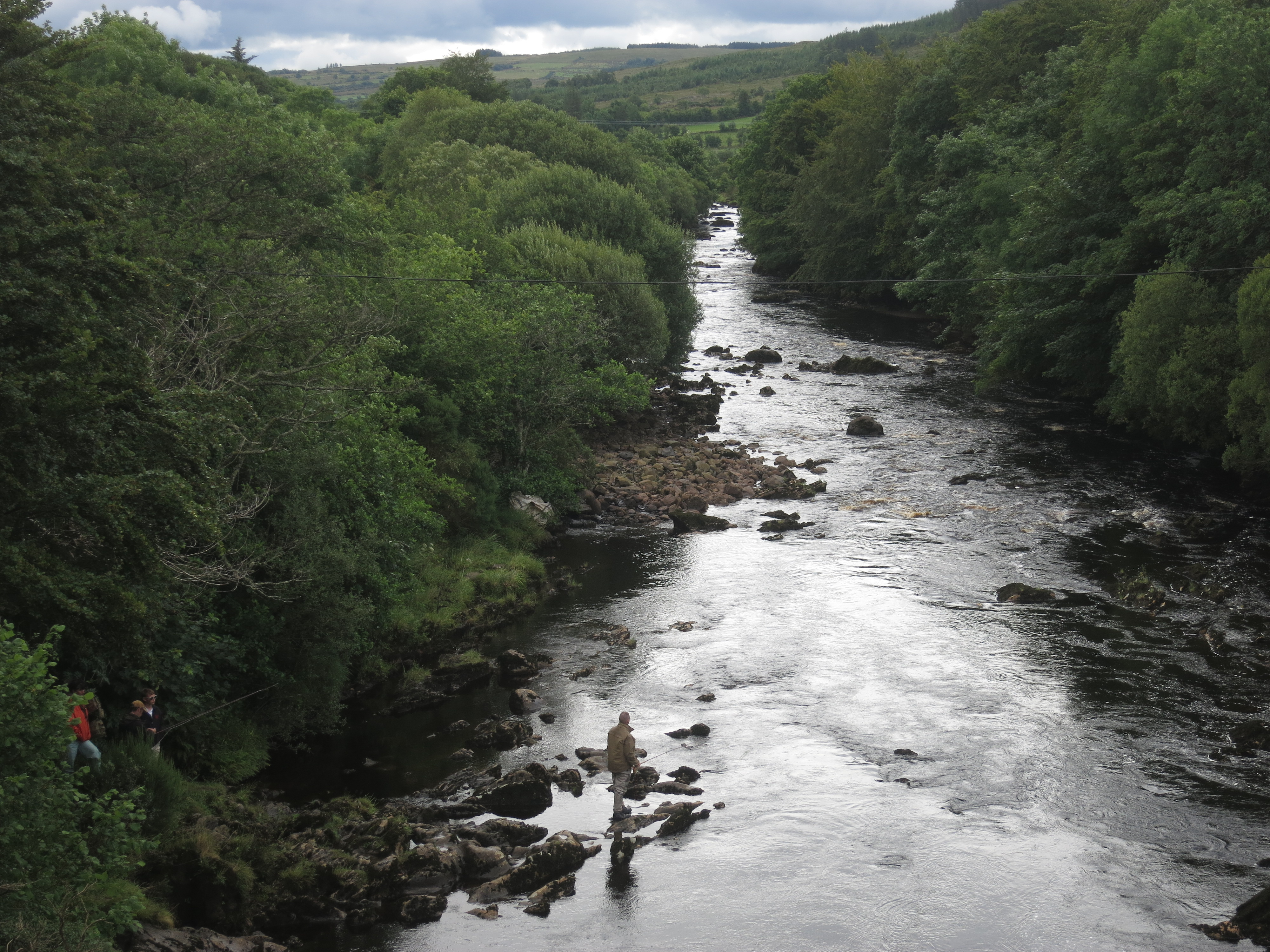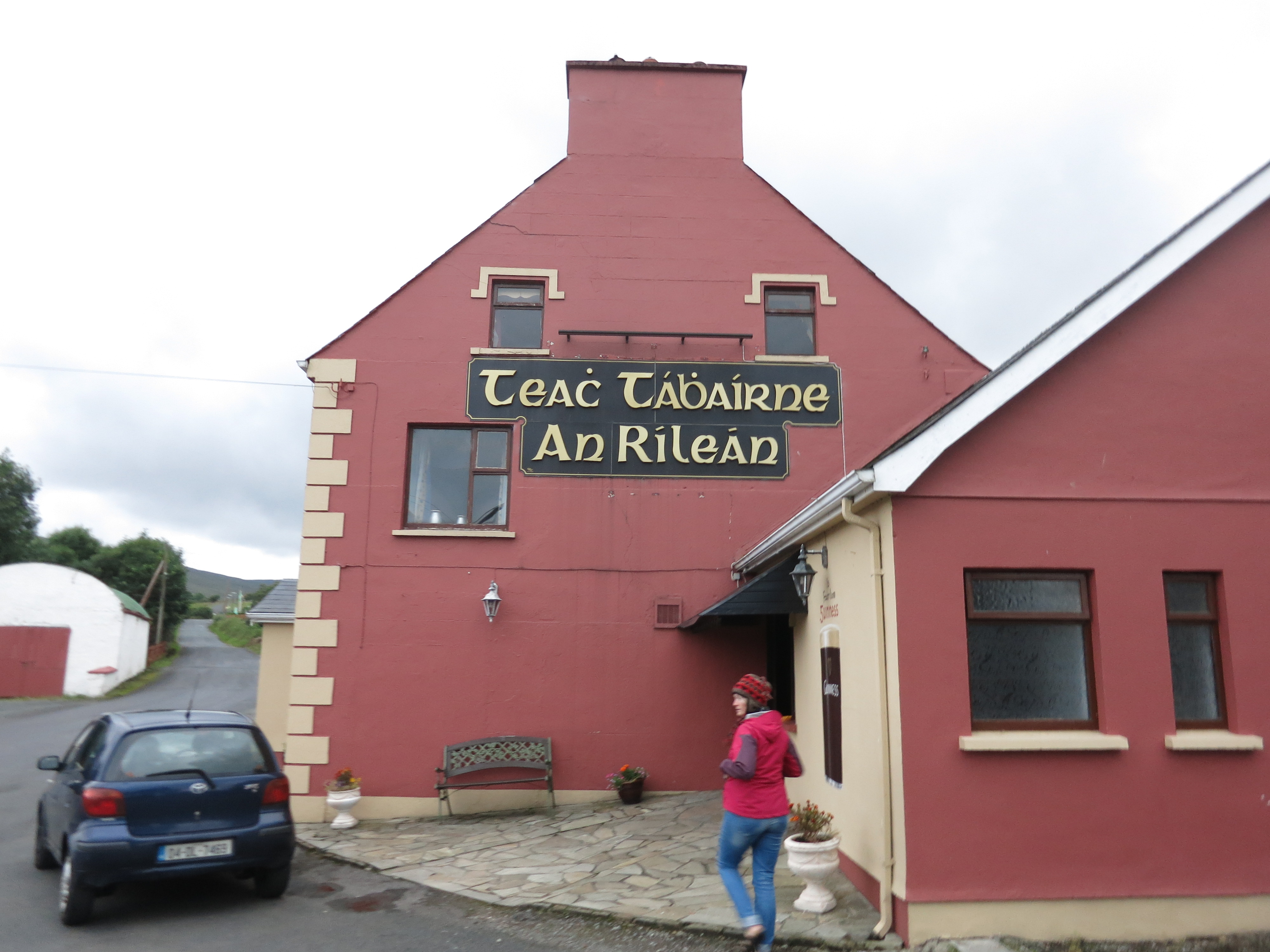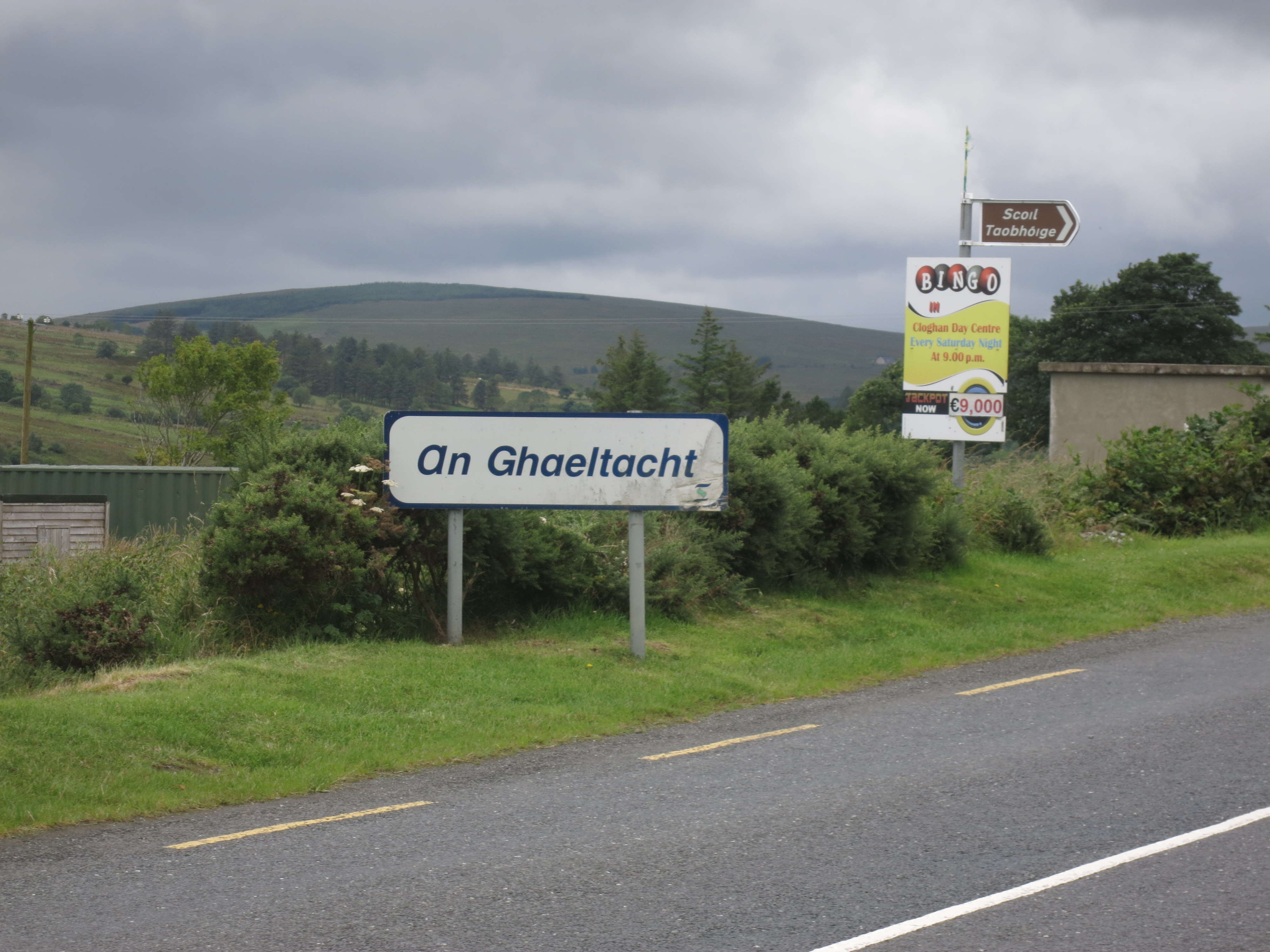
Part of my plans in Europe was to learn some Irish. Back in Australia I did an audio course of eight half-hour lessons, which I reviewed again a fortnight ago, as well as doing some basic vocab and grammar preparation, so I could speak and understand a few key phrases. But to get serious I did a week-long course with Niamh in the Gaeltacht. The Gaeltacht broadly means Celtic-ness generally, or the area where Celtic language and culture is alive, though a more common usage these days is the areas where Irish is spoken as the primary language (this and some of the following information about Irish language policy was gleaned from The Celtic Languages, ed. Ball and Müller, 2nd edition, especially Chapter 12), so 'going to the Gaeltacht' means going to an area where Irish is spoken in everyday life. These areas are officially recognised, and even sign-posted, and have their own government department which aims to preserve and strengthen the language as well as to foster economic growth in the Gaeltacht areas.
Going to the Gaeltacht is something many Irish people have done as kids. Learning Irish is compulsory in Ireland, with lessons every day in the language, and to improve their skills, many kids are sent off to a Gaeltacht for a few weeks over summer to live with a local family and do intensive lessons; no English is allowed to be spoken for the entire period, a rule that is rigidly enforced, with kids sent packing if they speak a complete sentence in English. With this in mind, we'd expected something similar, so I was prepared to speak no English for the week; in practice there was, for better or worse, a lot of English spoken, both in the house we stayed at (by the other students who were staying there) and by my teacher in class. I did stay English-free for the second-last day of the course, but was completely wrecked by the end of the day, so I'm not sure it would have been possible at the beginner level! So it wasn't quite the level of Irish immersion that I'd expected, but I did make enough progress to understand the basics of the grammar and be able to have an extremely basic conversation.
Niamh, who had, like so many Irish people, told me she spoke poor Irish, but, as it turned out, she was able to converse freely. She tells me she makes lots of mistakes, but I was very impressed with her knowledge of the language!
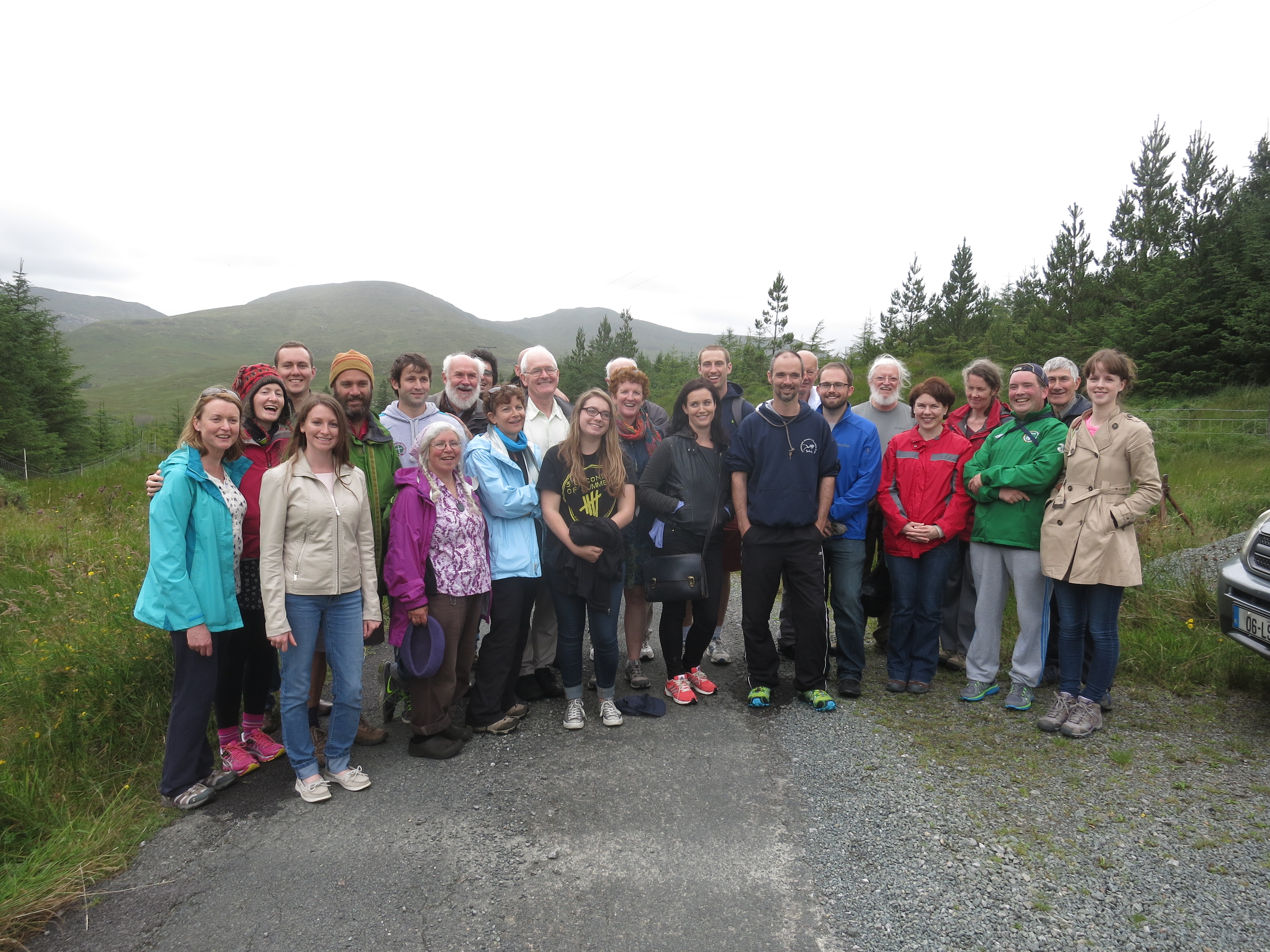
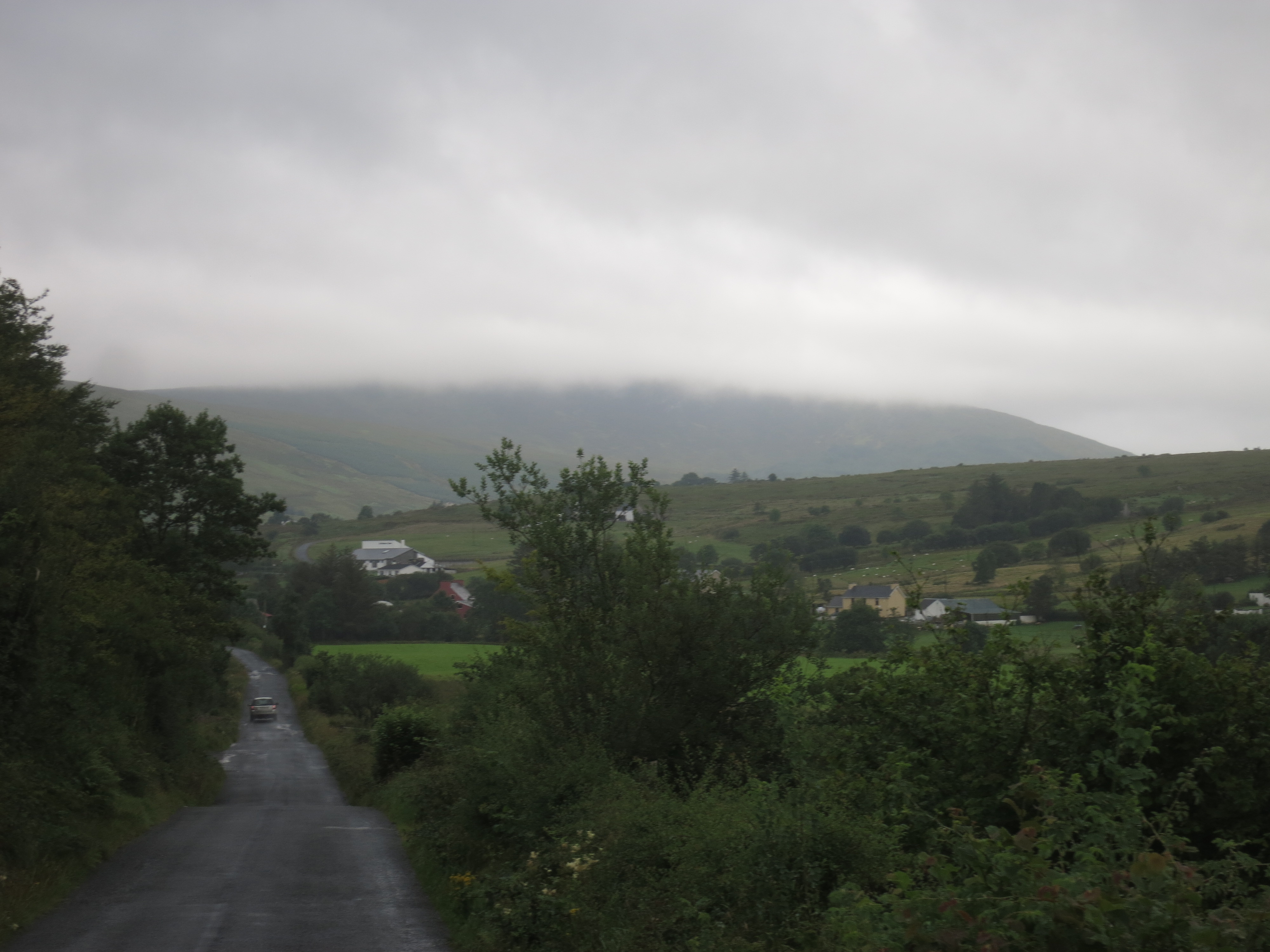
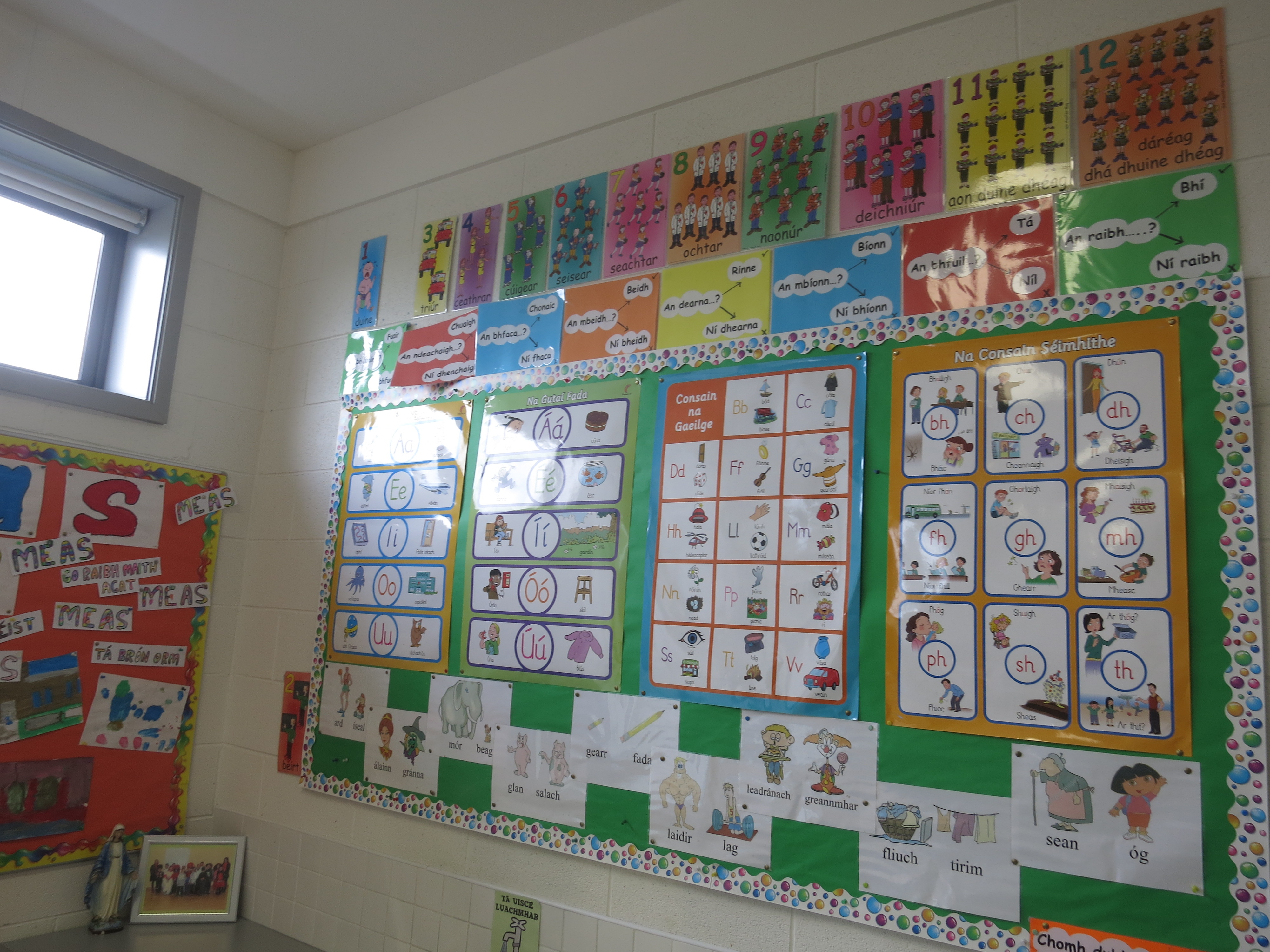
The position of Irish is very complex. I'd expected people to more or less want to improve their Irish and have Irish return to being the language of the country, but attitudes are much more nuanced and contradictory than that. Firstly, the majority of people (probably over 90% of the population) are not Irish first-language speakers, so their knowledge of Irish comes through older relatives and, more importantly, schooling, where Irish was compulsory (and a pass needed in final exams to enter the National University, for instance). The large majority of people I've spoken to favour promoting the Irish language, whether for heritage reasons or to work towards restoring it as the first language of the nation, but everyone says it was taught terribly in school and consequently they have a love-hate relationship with the language. So many people passively support strengthening Irish, but relatively few actively use or improve their Irish, let alone pass it on to their kids. However, I'd expected that in the Gaeltacht people would be very proud of their language and actively use it, but I was surprised to see that even there English is gaining ground and Irish appears to have a lower status; many people raised in Irish, sometimes not even speaking English until school, won't speak it much or at all – this isn't to say it's like that in all the Gaeltachts (or na Ghaeltachtaí to be exact!) or to deny that there aren't many people passionately and actively using and promoting Irish, but it was a big surprise to see the amount of people seemingly indifferent or even negative to their own language. In fact it was a contrast to those people outside the Gaeltacht, especially in parts of Northern Ireland, who were actively trying to speak Irish (as mostly adult learners) in their own daily lives and who were as confused as me about why people who had this richness of language from birth were turning away from it.
I couldn't help but be reminded of the situation of Australian languages around Katherine – there the government, and broader society, are largely indifferent or hostile to Australian languages, such as Warlpiri or Kriol, whereas Ireland there's been consistent financial and ideological support for Irish on a vast scale, yet in both cases the languages are diminishing (here I'm talking about generalised attitudes, as the scale of the destruction of Australian languages is of many greater orders of magnitude). There is the same perplexing disparity between strong support for the language and people not speaking it to their children; it's obviously, amongst both language communities, a difficult subject to discuss, because it touches at people's core, but I did talk to a few (mostly adult learners) about it and their seems to be the same deep post-colonial mixture of explicit pride and implicit shame that results in people regarding the language as both desirable, yet in adequate. At least that's my pop-anthropological take on it – I'd welcome comments from more learned and informed readers!
Anyway, after a week of intensive learning I've made a resolution to do daily practice until I leave in October and hopefully by then I'll be chatting merrily away!
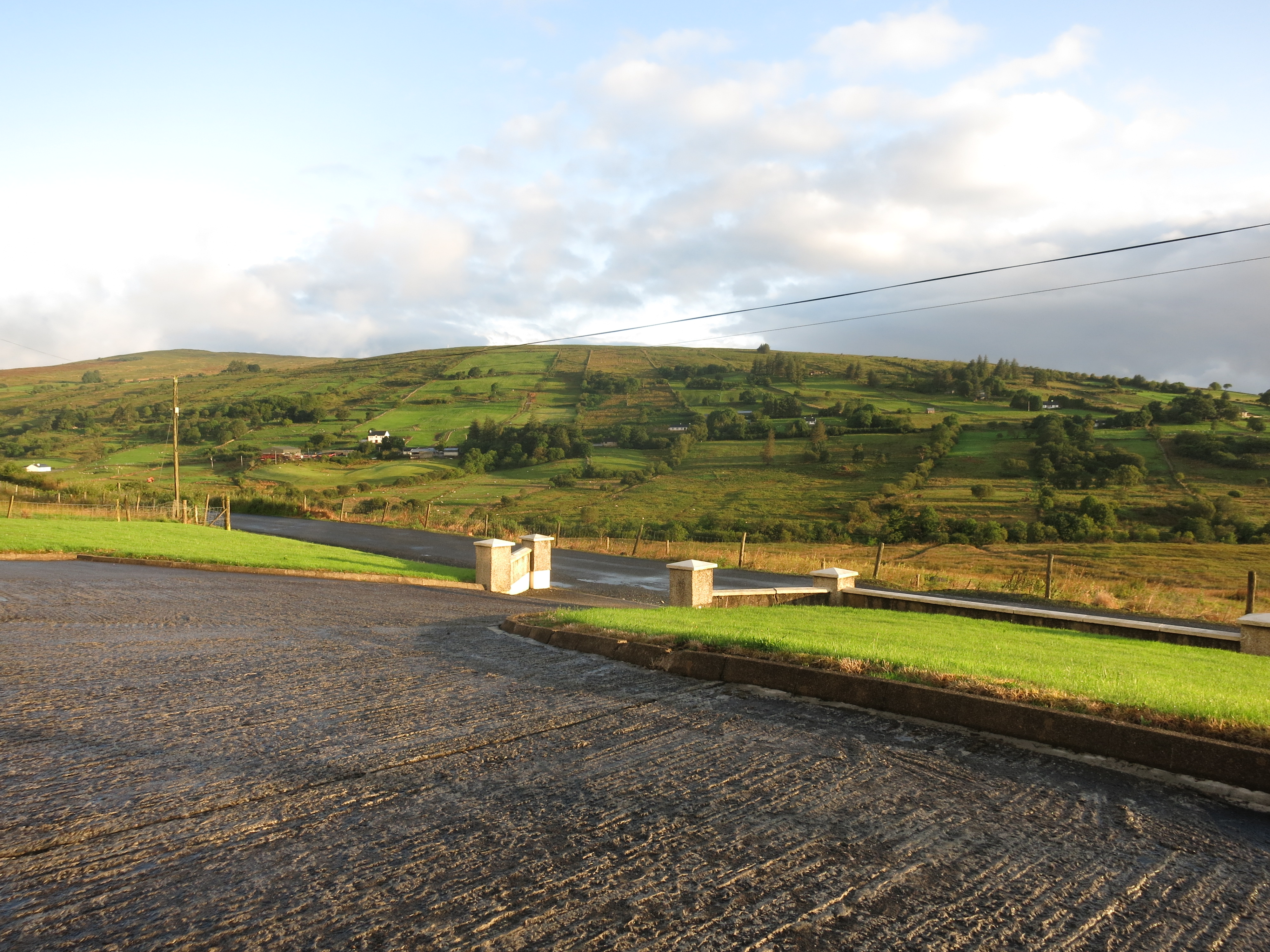
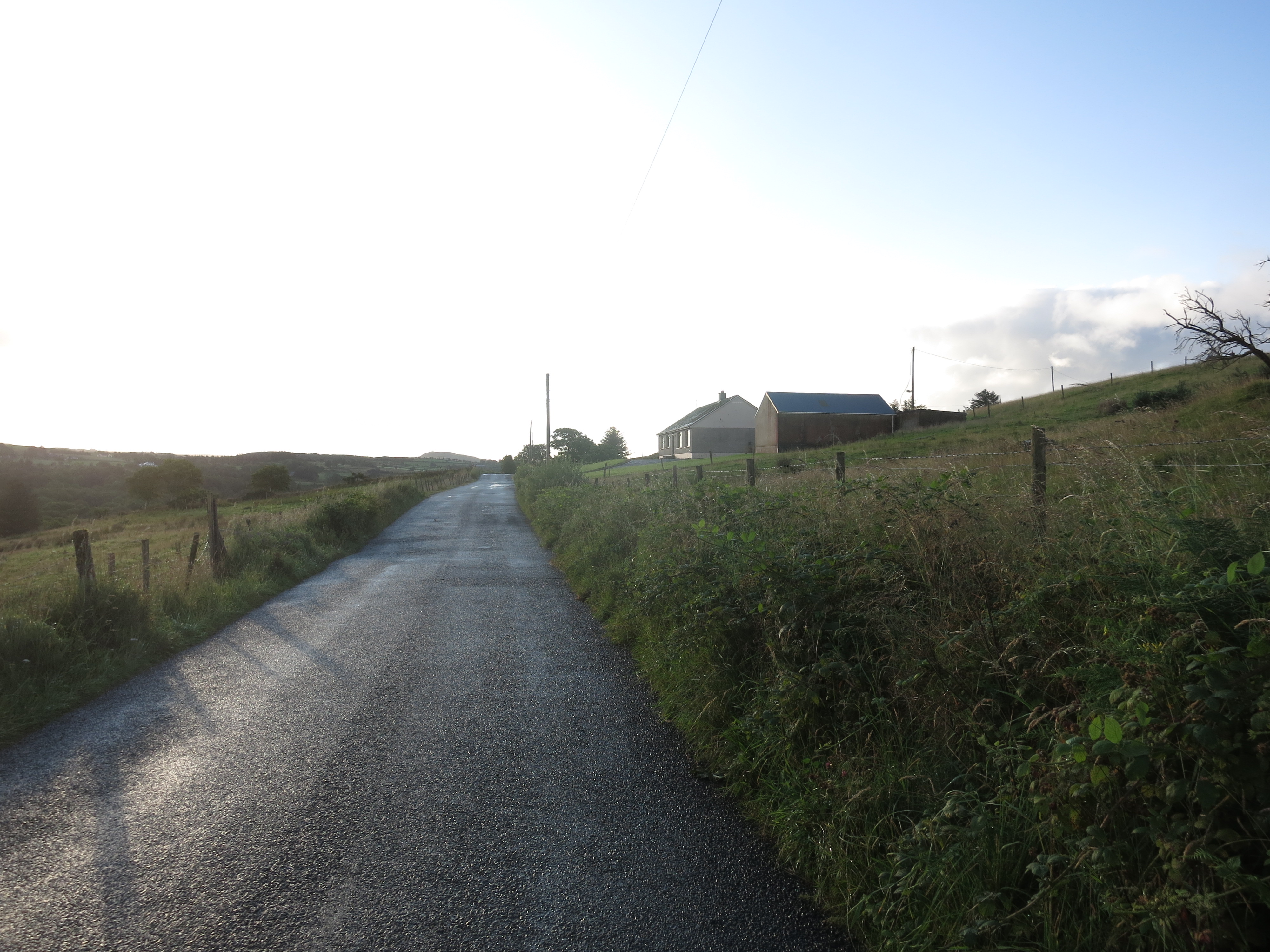
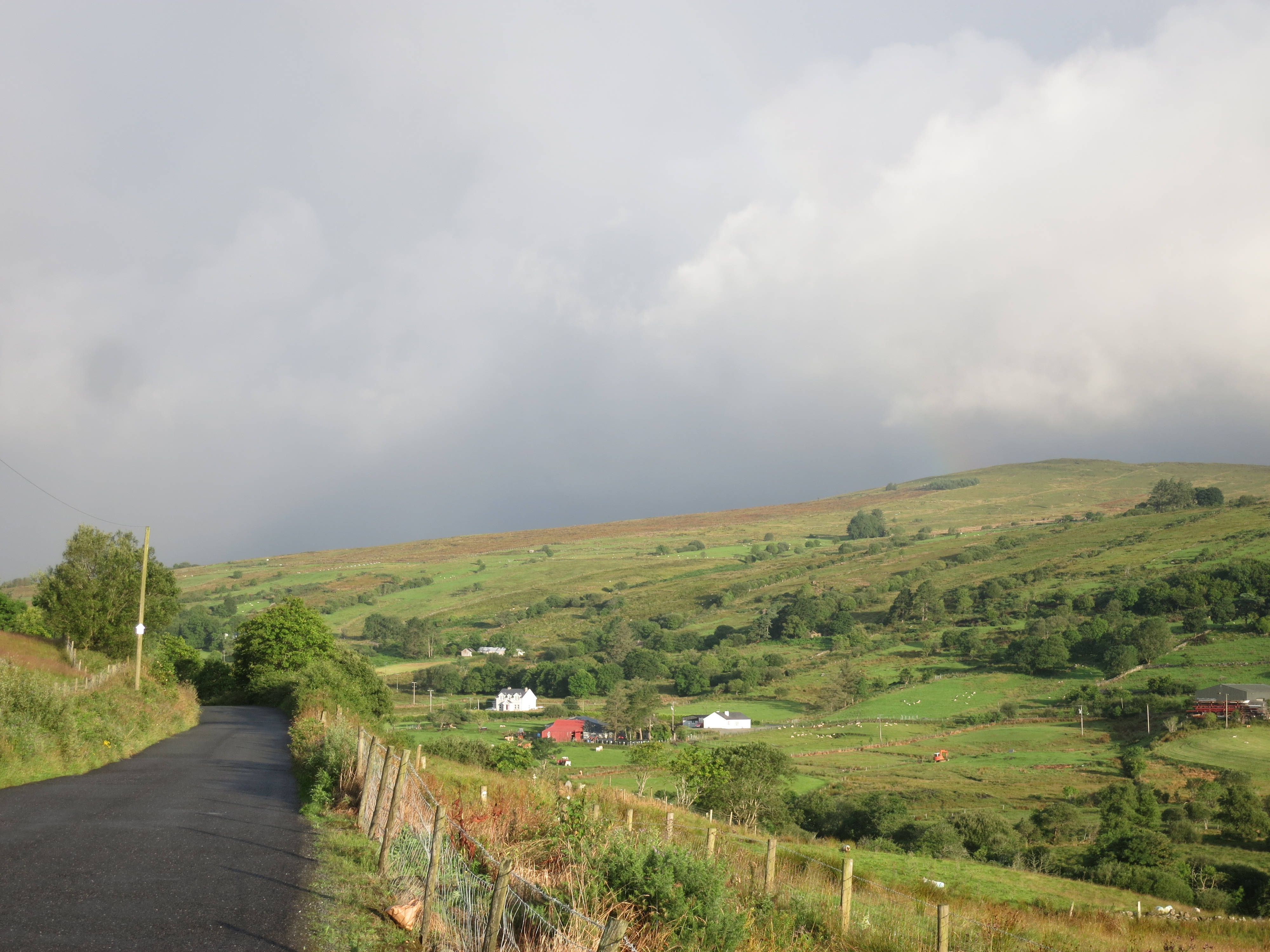
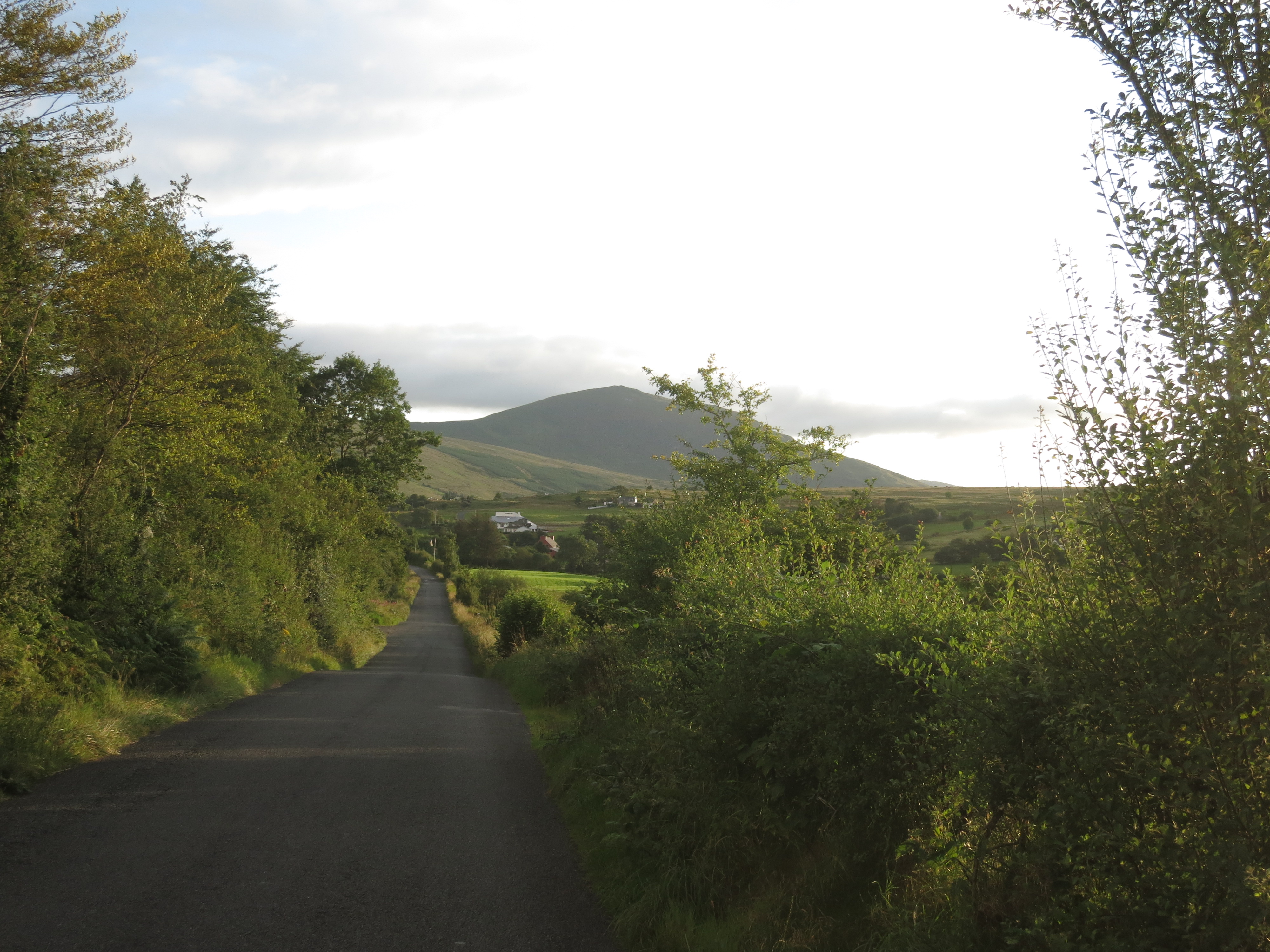
 The same lovely road.
The same lovely road.
